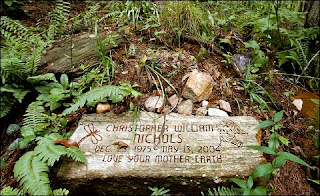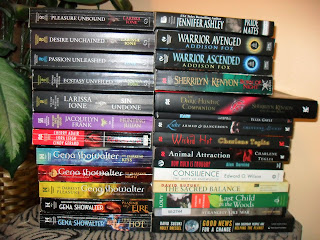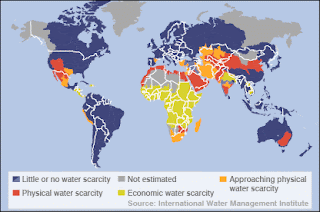*song playing in the background: Bursting Through, by Bic Runga*
My brother's family is bracing themselves for the blow, it won't be a fatal one, but it will leave permanent scars on the entire family. His father-in-law is dying--has been for months--and is now with only days left in his long, hard battle with cancer. My two nephews have never really had to deal with death before. The eldest is 16, old enough to completely understand what is going on and the extensive affects it will have on all of them. The youngest, 7 only knows that “Jah-Jee” (polish ‘grandpa’) is about to go to heaven. My family is very close, and we've been preparing ourselves for this for a while, but as it breaths down our necks our chests constrict and throats dry. This is gonna be bad, almost as bad as when my grandmother died... almost.
So why the post? Well, not even an hour ago whilst talking to my eldest nephew about his day, he completely went to pieces, asking the proverbial 'Why?' and 'What are we going to do now [without him]?' No amount of consoling, holding, or soothing words will make this hurt less--for any of them. I hate to see family members cry--especially men, since they're all very masculine, alpha and chivalrous. Seeing my nephews in tears knocks the wind out of my chest, seeing my brothers is crippling, and thankfully I've only seen my father cry once. His break down made me cry, made me wish there was some way to make his grandfather's passing easier. Which got me thinking about funerals.
Now, I've long abandoned religion... however, I'm quite sensitive and tender-hearted--one could argue that I am spiritual even. I understand the idea of hallowed ground, but I always found funerals to be... well, morbid. Even as a child I could not see how laying someone in a box--no matter how elaborate--and putting them in the ground was an appropriate ending to theirs lives as a cherished member of the family. Especially children, of which my family has buried three. Cremation also never sat will with me, especially during my questioning of religion 'You're going to set them on fire? Like in Hell... to get them to Heaven?' …And then when you go to the cemetery there's a cold stone marker, dark and dreary no matter what the color of the headstone or the weather outside... and you sit there, thinking of that member and just feeling empty. That is in no way how I want to remember beloved members of my life; it's not befitting them or appropriate, and that's why I rarely go there to remember them. 'Remember the good times,' people always say, but how do you do that--when the wound is fresh especially--knowing they're rotting in a box beneath a cold stone slab?
Now, this post isn't to lecture about how 56 million people die every year, or that 50 million trees are cut down (releasing 8 million tons of CO2) for coffins... it's not about that at all, because honestly, when you're hurting that shit doesn't matter one iota to you. No, this is about something deeper.
It is about greener funerals, but it's also about better healing. I know very few people who are not comforted by Nature, people who are not soothed by sunshine, a soft breeze whispering through trees while birds sing. The Green Burial movement was not just born of people wanting to reduce their final footprint (because traditional burial methods are incredibly impactful), but by those wishing to send off, and remember their loved ones in a way that more appropriately celebrated their life.
 There are several forms of green burial (all of which I will not go into), including Promessa, woodland burials, & living markers. Every method forgoes embalming and all the toxic chemicals associated (and therefore put into the system), and decedents are placed in simple & sustainable pine boxes, cremated or are simply wrapped in a shroud and then buried in a natural setting. Some chose their eternal resting place to be by a river, or an outlook, and many chose it to be in close proximity or directly under a tree. Small placards are placed at the site to mark it so that you know exactly where your loved one lies. The scene is remarkably different, as opposed to a little bit of grass and flowers among row after row of cold stone, imagine being surrounded by life: trees, flowers and birds. Encompassed by life vs. encircled by the death.
There are several forms of green burial (all of which I will not go into), including Promessa, woodland burials, & living markers. Every method forgoes embalming and all the toxic chemicals associated (and therefore put into the system), and decedents are placed in simple & sustainable pine boxes, cremated or are simply wrapped in a shroud and then buried in a natural setting. Some chose their eternal resting place to be by a river, or an outlook, and many chose it to be in close proximity or directly under a tree. Small placards are placed at the site to mark it so that you know exactly where your loved one lies. The scene is remarkably different, as opposed to a little bit of grass and flowers among row after row of cold stone, imagine being surrounded by life: trees, flowers and birds. Encompassed by life vs. encircled by the death.The creator of the Promessa method remarked “I feel very calm in knowing that I will be a rhododendron when I grow up.”
Take these next few lines literally in the biological sense, or in the metaphorical/spiritual sense. Wouldn’t becoming a part of a tree, forest, the natural world in general be a more appropriate tribute to loved ones lost? So that every time you go to visit them you can see how their passing gave new life, see the visible growth in the tree they were planted beneath, feel their essence breathing still in its leaves and flowers… Wouldn’t it grant you more peace to sit next to this beautiful living being, and sense that your loved one is still present. No matter what God to subscribe to I’m sure s/he would be extra pleased to know that you selflessly gave back to his creation after your passing.
We have all experienced grief; thinking back on that grief, wouldn’t this seem a more suitable alternative? Isn’t it easier to remember the good times sitting under a tree, or next to a flowering bush instead of standing in front of a large, cold piece of stone with their name carved into it? Even for those who aren’t into the spirituality or environmentalism of these ideas, the more selfish, skeptical of people: think of it as a way to live forever. Like the character Yossarian, in Joseph Heller's novel Catch 22, who decided "to live forever or die in the attempt."
Thinking about the pain my nephews, as well as my brother and his wife, will soon be in makes me think of the pain my son will be in when I pass (hopefully not for a very, very long time!) Do I want him to stand before a headstone with the same feeling of emptiness? Or do I want drive home in interconnectedness of all life on Earth, and contribute to the life of another? Like I said earlier, burial and cremation never made sense to me. This does. So this is the route I’ve chosen to go. Of course, research and loose plans will not be made immediately—being there and consoling my family is the first priority, but once they start to pick up the pieces and move on I’ll look into it a bit more and will probably post more information on this topic then.






















